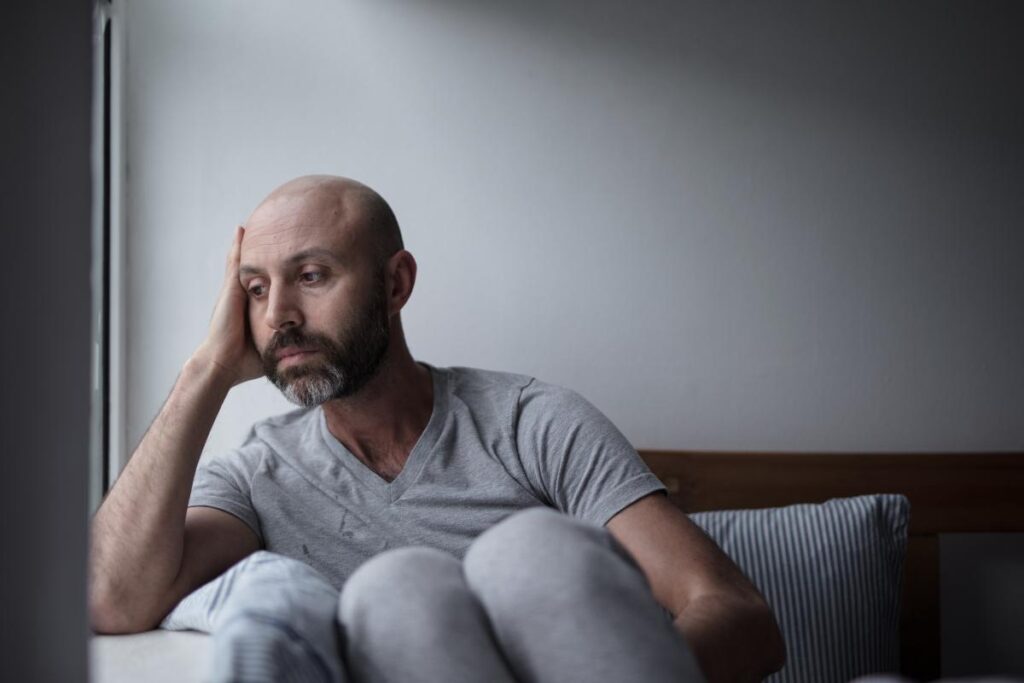Millions of Americans continue to live with past or recent traumas and struggle with controlling their response to triggering situations. A trauma response is a triggering event that causes an intense emotional reaction that will feel like they are reliving the trauma all over again. Trauma can affect children, teenagers, and adults and is caused by a number of sudden or dangerous situations.
Evoke Wellness at Coconut Creek is a fully accredited behavioral health treatment center that works with the people of Florida who are dealing with unresolved childhood trauma or a more recent traumatic event. Trauma can cause a number of mental health conditions, including post-traumatic stress disorder, social anxiety, bipolar disorders, and substance use disorders. Therapy programs are designed to reduce the traumatic response to triggering sights, sounds, smells, or people by teaching patients healthy ways of processing their emotions and feelings.
Enroll in our PTSD treatment program in Florida by calling 866.693.3871 to schedule a tour and meet our dedicated team of therapists and support staff.
What Is a Trauma Response?
A trauma response is an emotional and physical response to unresolved traumas that can overwhelm a person and lead to a number of distressing symptoms. These symptoms can include racing heart rates, intense fear, agitation, anger, sadness, self-hatred, panic attacks, and other disruptive symptoms.
There are five types of trauma responses:
- Fight – A fight response is where you feel like physically fighting against the perceived threat that triggers a response.
- Flight – This response causes an uncontrollable urge to flee and put as much distance as possible between you and the threat.
- Freeze – This type of response is characterized by going tense, still, and silent. It can feel like their body completely shuts down, yet they are still awake and alert. This type is common in those who experience rape or sexual violence.
- Flop – Similar to freezing, except with this response, you lose all control of your muscles and will “flop” to the ground, which is similar to passing out or going unconscious.
- Friend – This response triggers you to call out for help or to befriend the person who triggered their symptoms. They may try to placate or negotiate with the person, which can further reduce their self-esteem and self-worth.
Everyone responds to trauma in different ways that depend on their upbringing and genetics. Children with parents who have experienced trauma or other mental health disorders can have a more intense reaction to trauma and have fewer defense mechanisms to protect themselves.
Evoke Wellness in Coconut Creek has experience working with all types of people and reducing the impact of trauma. Therapists will learn all about the trauma that affects you and use behavioral therapy techniques to teach you new ways of coping with your specific triggers.
Understanding the Impact of Trauma
A number of symptoms may manifest in an individual based on the type of trauma they experience. Those with combat experience may negatively respond to loud noises or flashes of light. Childhood trauma can lead to trouble forming close relationships with others and increase the risk of developing additional mental health disorders like addiction and depression.
The initial reaction to a traumatic event causes a person to go into a state of shock. This can cause them to be in a state of disbelief and have a hard time accepting or understanding what is happening. Other initial symptoms include exhaustion, feeling physically numb, anxiety, agitation, dissociation, and physical arousal.
If the trauma is not resolved, it can cause a number of problems in your day-to-day life in the future. The long-term impact of trauma includes:
- Poor emotional control
- Vivid nightmares
- Flashbacks
- An inability to form close relationships
- Headaches
- Nausea and vomiting
- Worsening PTSD symptoms
- Depression
- Suicidal thoughts or attempts
The effects of trauma can be very devastating if left unresolved. While there is no cure-all pill to reduce trauma responses, participating in trauma therapy can help reduce the impact trauma has on your current health and well-being.
Enroll in a PTSD Treatment Program in Florida at Evoke Wellness
At Evoke Wellness at Coconut Creek, we support people with past or recent traumas who are experiencing intense responses to everyday situations. We use a mix of medical support and behavioral therapies to ease their symptoms and teach them new ways of responding to their trauma triggers. Our treatment programs include group and private therapy sessions in a discreet location far from daily distractions and triggers.
Discover the benefits of our trauma therapy programs by calling 866.693.3871 today or reaching out online and begin regaining control of your life.


